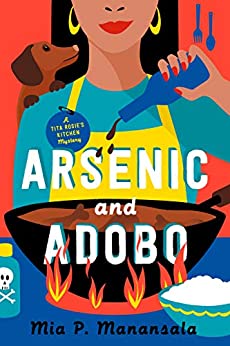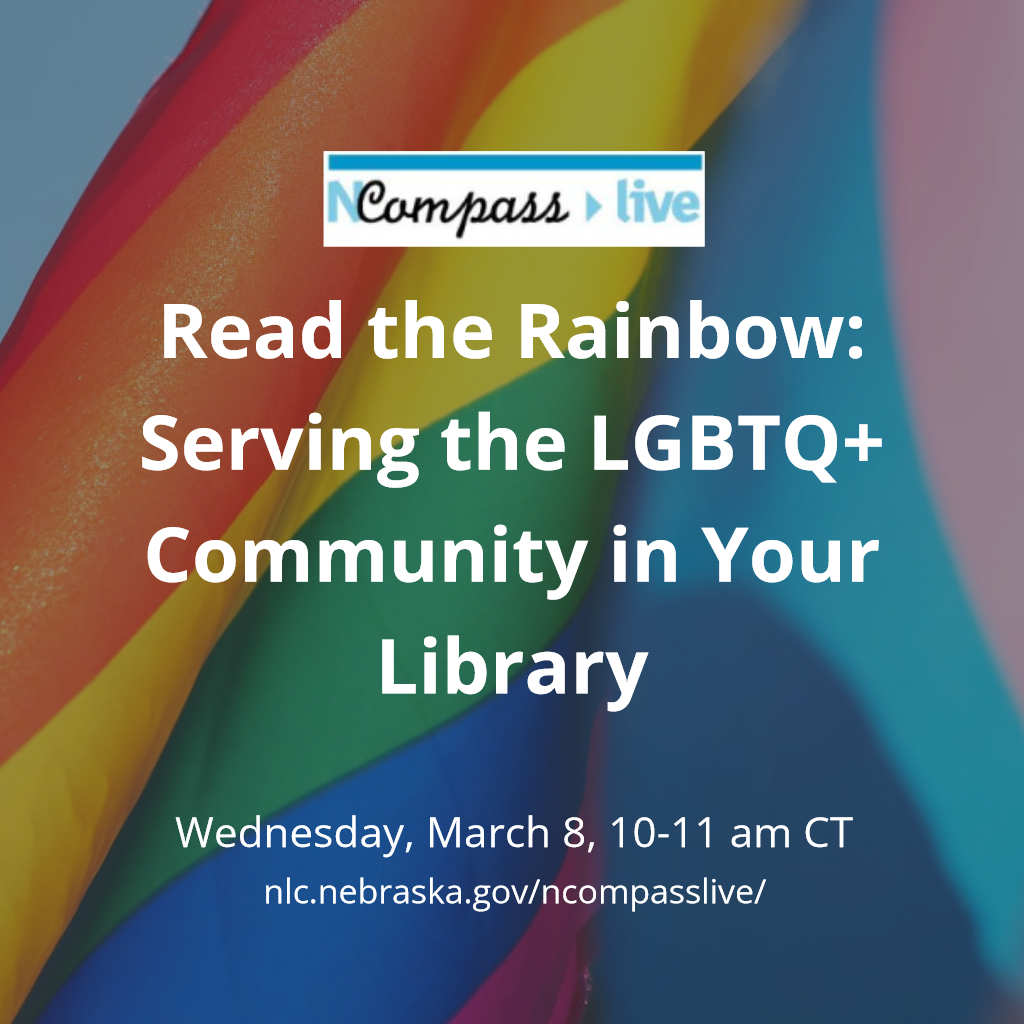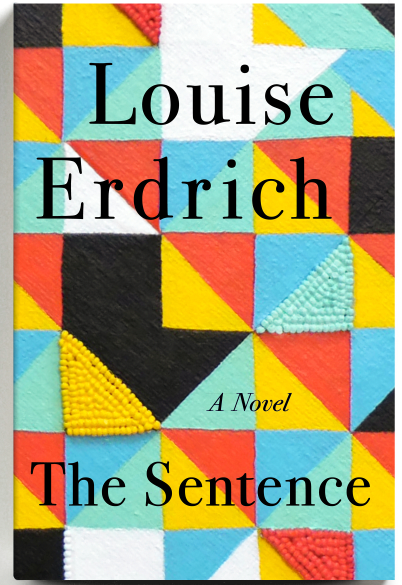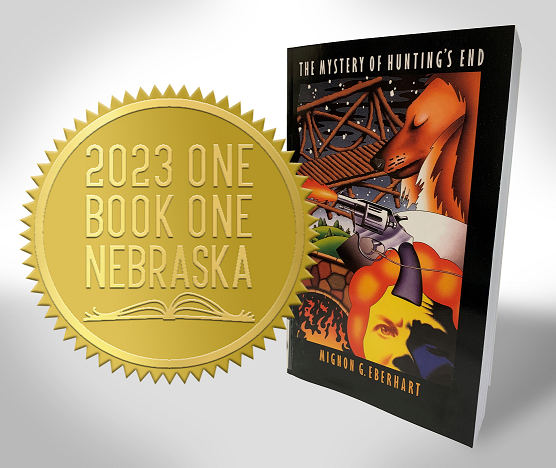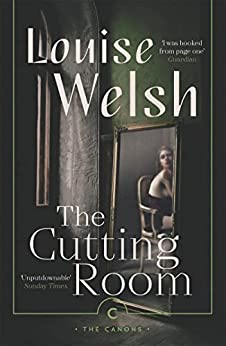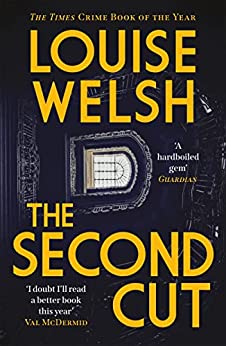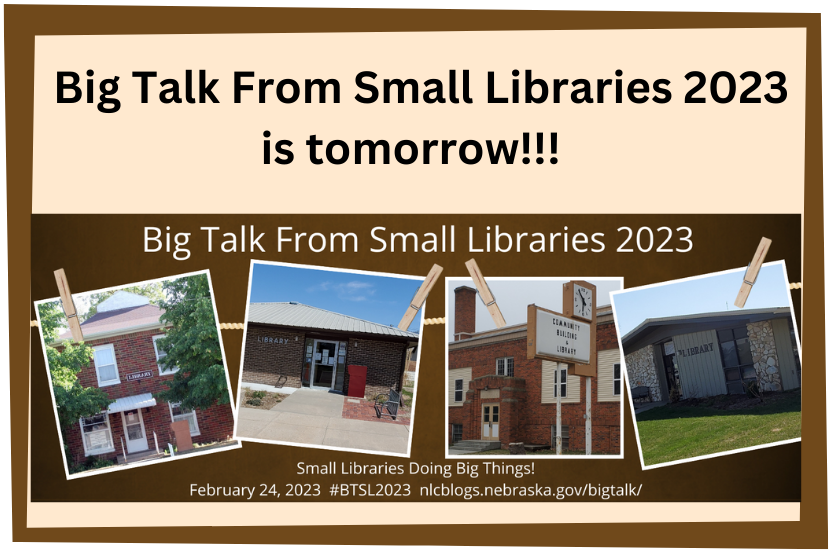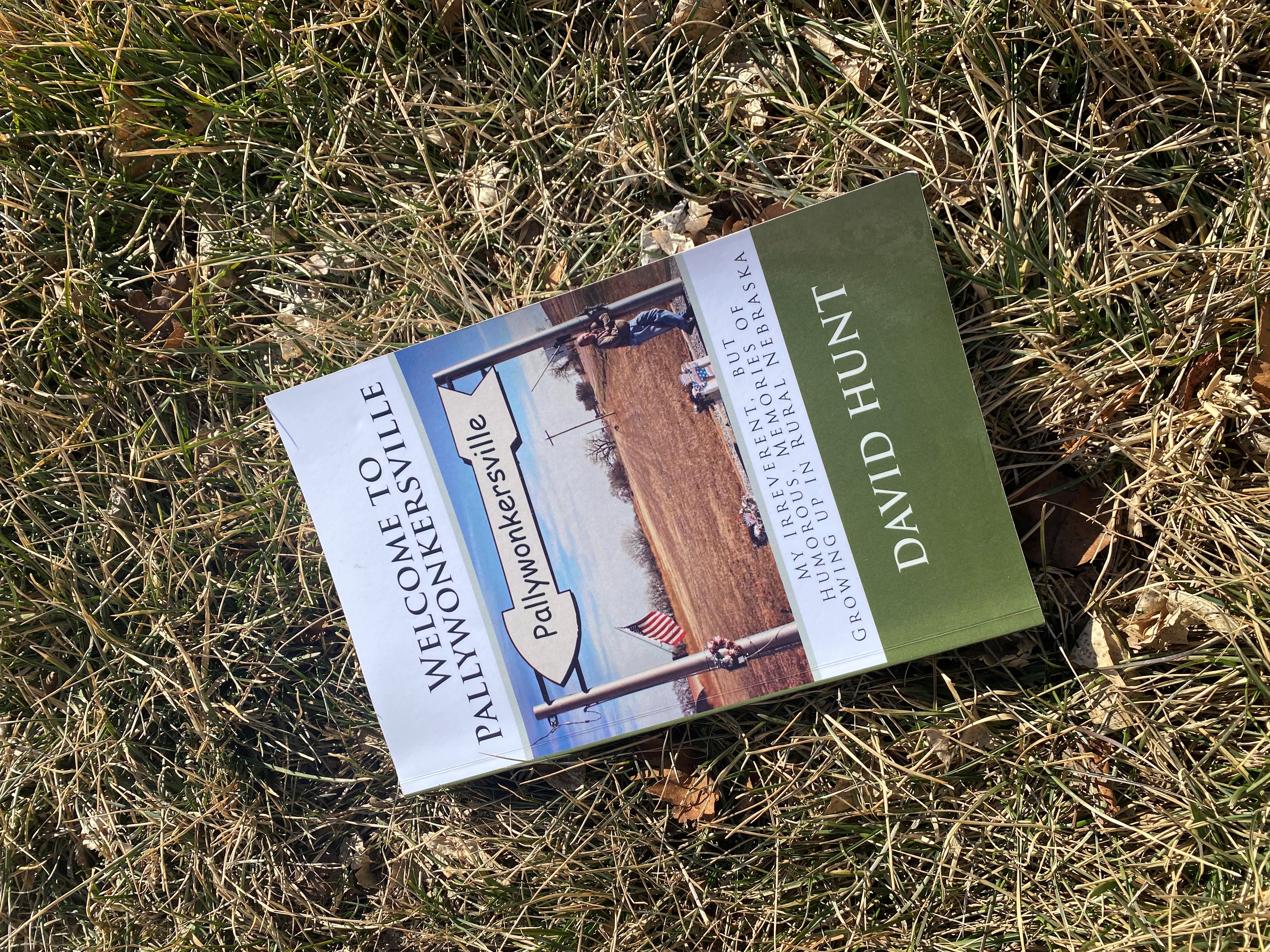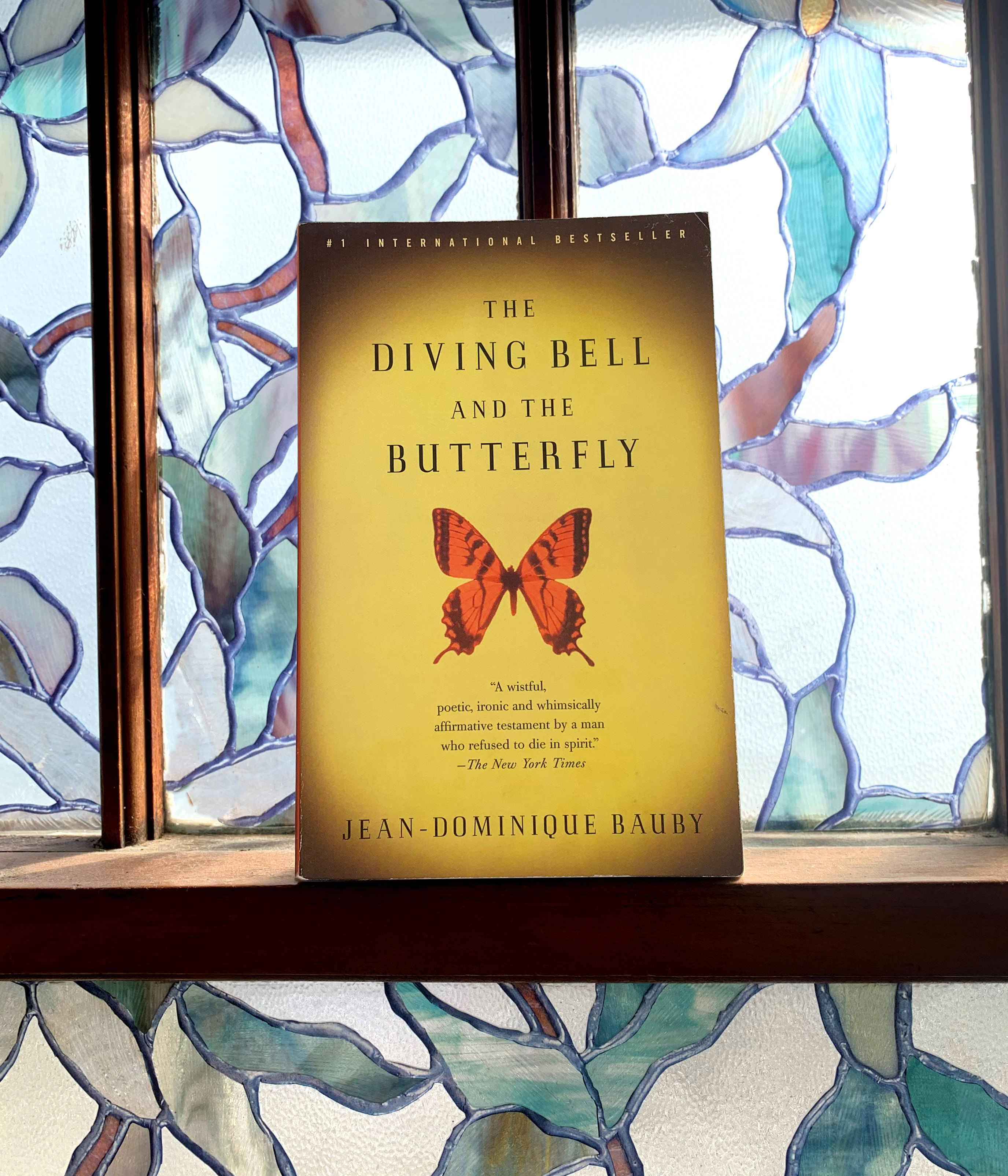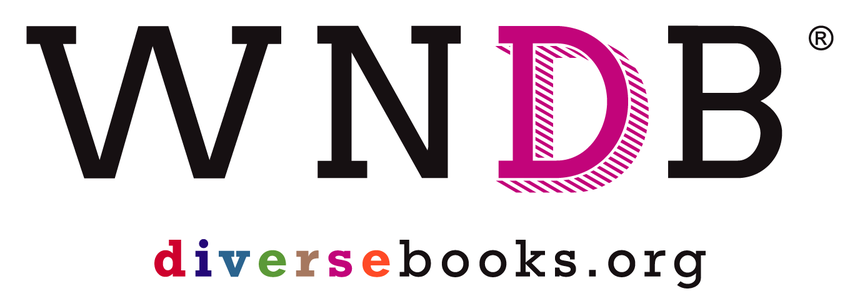Search the Blog
Categories
- Books & Reading
- Broadband Buzz
- Census
- Education & Training
- Friday Reads
- General
- Grants
- Information Resources
- Library Management
- Nebraska Center for the Book
- Nebraska Libraries on the Web
- Nebraska Memories
- Now hiring @ your library
- Preservation
- Pretty Sweet Tech
- Programming
- Public Library Boards of Trustees
- Public Relations
- Talking Book & Braille Service (TBBS)
- Technology
- Uncategorized
- What's Up Doc / Govdocs
- Youth Services
Archives
Subscribe
Category Archives: Books & Reading
#BookFaceFriday “Frog Music” by Emma Donoghue
It’s not easy being green with this #BookFaceFriday!
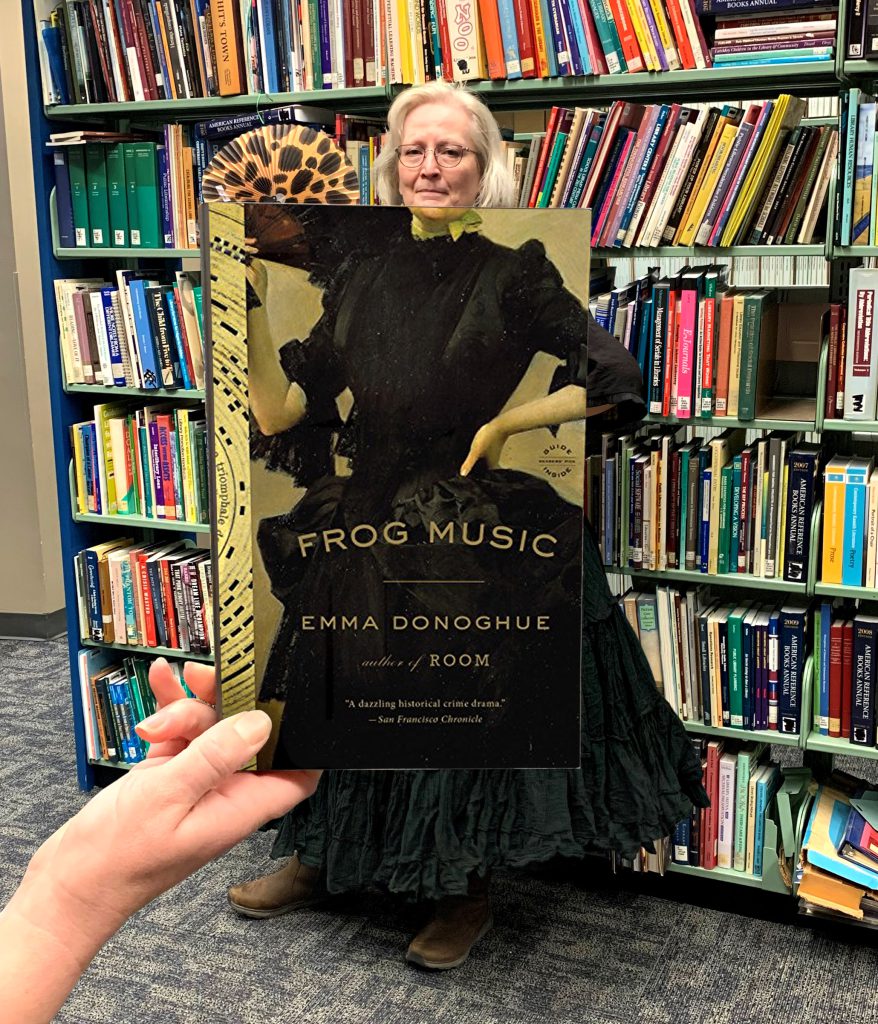
Happy St. Patrick’s Day! We’re celebrating with an Irish author for this #BookFaceFriday. Born in Dublin, Emma Donoghue is a worldwide bestselling author, and we have several of her books available, like “Frog Music: A Novel” (Back Bay Books, 2015.) This title is available as both an eBook and an Audiobook in Nebraska OverDrive Libraries. It’s also a part of the “St. Patrick’s Day: Irish Authors/Settings” collection on Nebraska OverDrive Libraries. Check out all the titles in this carefully curated collection of books by Irish authors or with Irish settings/themes.
“Donoghue flawlessly combines literary eloquence and vigorous plotting in her first full-fledged mystery, a work as original and multifaceted as its young murder victim…. An engrossing and suspenseful tale about moral growth, unlikely friendship, and breaking free from the past.”
―Sarah Johnson, Booklist (Starred Review)
Find this title and many more through Nebraska OverDrive! Libraries participating in the Nebraska OverDrive Libraries Group currently have access to a shared and growing collection of digital downloadable audiobooks and eBooks. 189 libraries across the state share the Nebraska OverDrive collection of 21,696 audiobooks, 35,200 eBooks, and 3,964 magazines. As an added bonus it includes 130 podcasts that are always available with simultaneous use (SU), as well as SU ebooks and audiobook titles that publishers have made available for a limited time. If you’re a part of it, let your users know about this great title, and if you’re not a member yet, find more information about participating in Nebraska Overdrive Libraries!
Love this #BookFace & reading? Check out our past #BookFaceFriday photos on the Nebraska Library Commission’s Facebook page!
Posted in Books & Reading, General
Tagged Audiobook, bookfacefriday, Ebook, Emma Donoghue, Frog Music, libraries, Nebraska OverDrive Libraries, Novel, Reading, St. Patrick's Day
1 Comment
Book Club Spotlight – Are You There God? It’s Me, Margaret
March, being Women’s History Month (shoutout to women), gives me an excuse to visit a book in our collection that has influenced and consoled countless young girls and women since 1970. Selected as the 1970 New York Times “Outstanding Book of the Year,” listed in Time’s 2010 list of “All-Time 100 Novels”, and in Scholastics’ “100 Greatest Books for Kids/100 Must-Read Books”, Are You There God? It’s Me, Margaret by Judy Blume has carved a legacy and guided our approach to educating young people about puberty. And pioneered middle-grade fiction at a time when books for kids “on the cusp” of puberty were nowhere to be found.
Eleven-year-old Margaret Simon’s relationship with God has nothing to do with religion. Her parents, one Christian and one Jewish, decided to raise her outside of any faith because of the pressure they received from their own religious upbringings. Even still, Margaret frequently talks to God, whoever he is, about her problems and insecurities, confiding in things she couldn’t tell anyone else. After moving to the New Jersey suburbs, Margaret is tasked with a year-long school project of her choosing. Deciding her project will be to finally find a religion that fits her (much to her parents’ discomfort), Margaret attends Jewish and Christian services, hoping to feel God there the same way as when she talks to him alone. At the same time, she and her group of friends, smartly named “The Pre-Teen Sensations,” wrestle with more down-to-earth issues, like boy problems and bras. All the while eagerly awaiting their first period, deathly afraid that something might be wrong with their bodies when it doesn’t come as soon as other girls in their class. Together, Margaret and her friends face down the scariest enemy of all: the epic highs and lows of being a pre-teen girl.
“I can’t go on being nothing forever, can I?”
Judy Blume
Margaret’s message is still relevant to young girls today. Despite being written over 50 years ago, young readers, alone or in a reading group, can see themselves in Margaret, even the parts they try to hide. Blume’s works encourage open and honest communication, creating a space for community and empathy, which is the foundation of any good book club. To be sincere, to experience new perspectives, and to grow together. All these years later, Judy Blume is still a household name, and for good reason. She created a space where it is easy and necessary to talk about ourselves and our feelings without shame. In school, we giggled and commiserated over her plain and frank depictions of real problems and things happening with our bodies that other adults might have shied away from talking about. But she never did. We’d pull from the advice of Blume to let us know there was nothing wrong with us, we were growing up, and that’s ok.
Amy Weiss-Meyer, a senior editor at the Atlantic, best sums up Blume’s influence and genuine care for nurturing young girls in the article We Still Need Judy Blume: “The letters started right after Margaret. The kids wrote in their best handwriting, in blue ink or pencil, on stationery adorned with cartoon characters or paper torn out of a notebook. They sent their letters care of Blume’s publisher. “Dear Judy,” most began. Girls of a certain age would share whether they’d gotten their period yet. Some kids praised her work while others dove right in, sharing their problems and asking for advice: divorce, drugs, sexuality, bullying, incest, abuse, cancer. They wanted to scream. They wanted to die. They knew Judy would understand.”
The first film adaptation of Are You There God? It’s Me, Margaret will be released in April 2023, starring Rachel McAdams and Kathy Bates, with Judy Blume as a producer.
If you’re interested in requesting Are You There God? It’s Me, Margaret for your book club, you can find the Book Club Kit Request Form here. There are 13 copies available (A librarian must request items)
Blume, Judy. Are You There God? It’s Me, Margaret. Bradbury Press. 1970.
Friday Reads: Arsenic and Adobo by Mia P. Manansala
Arsenic and Adobo is the first book in Mia P. Manansala’s “Tita Rosie’s Kitchen Mystery” series. This cozy mystery follows Lila Macapagal as she moves from Chicago back to her small hometown, trying to recover after a terrible breakup. She works in her family’s Filipino restaurant to help Tita Rosie, her grandmother, and the “calendar crew” – a group of aunties named after the months. One day, as she’s serving a special dessert to a particularly unpleasant food critic (and her ex-boyfriend), he dies…after an argument with Lila…surrounded by witnesses. The local detectives all look to Lila as the main suspect, as the restaurant is shut down and the landlord threatens eviction. Lila, along with her tough grandma and lovable aunties, must do her own investigation to find the truth and save their restaurant. (There’s also a dachshund pup named Longganisa which is adorable.) While Lila isn’t a super sleuth, there are other endearing characters to help her out, and plenty of town gossip.
Along with the restaurant, Lila’s dream is to open her own bakery of some kind, so there are lots of great food descriptions, which might not be helpful if you’re reading this while hungry. There are also a few included recipes in the book, like ube crinkle cookies. This was a good introduction to the series – a light, cozy mystery filled with family and food – a quick and easy read.
- Homicide and Halo-Halo (2022)
- Blackmail and Bibingka (2022)
- Murder and Mamon (2023)
#BookFaceFriday – “Louise Pound: Scholar, Athlete, Feminist Pioneer” by Robert Cochran
This #BookFaceFriday is a hole in one!
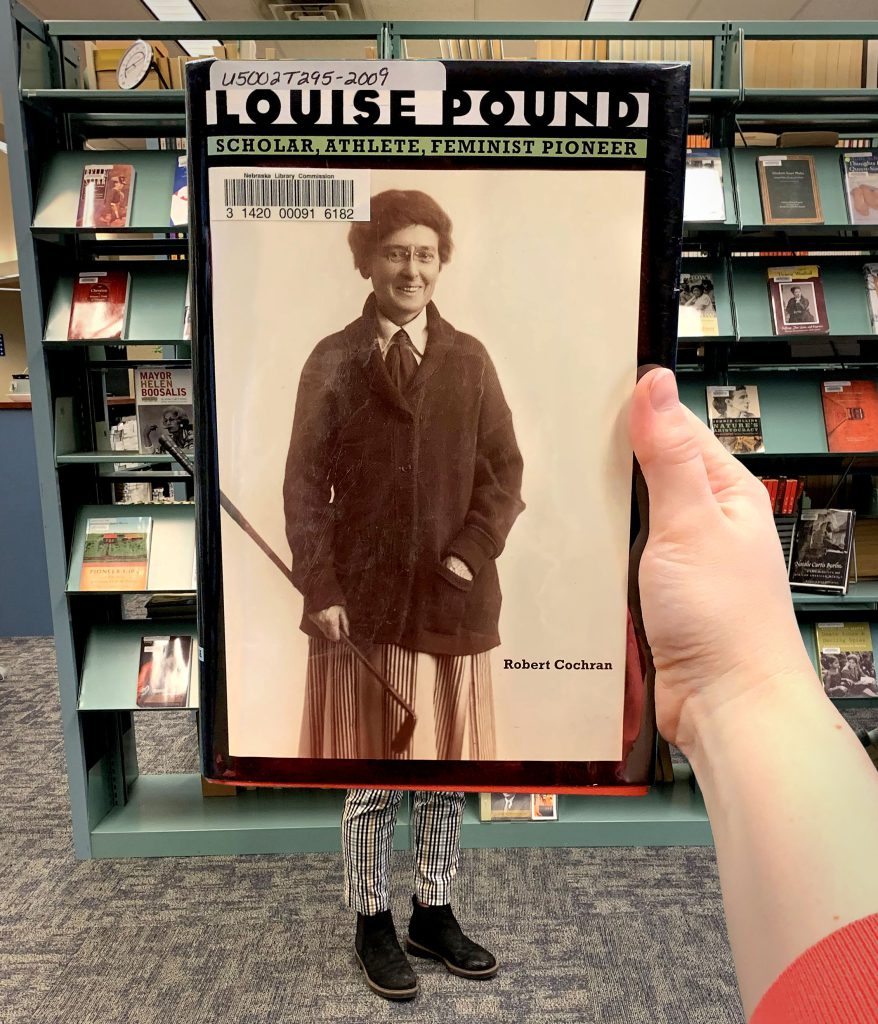
March is Women’s History Month and we’re shining a light on the impressive Nebraska women featured in our collection. Like this week’s #BookFace, “Louise Pound: Scholar, Athlete, Feminist Pioneer” by Robert Cochran (University of Nebraska Press; Illustrated edition, 2009.) You can find this title in the Nebraska Library Commission’s permanent collection; the Nebraska Publications Clearinghouse receives documents every month from all Nebraska state agencies, including the University of Nebraska Press (UNP). UNP books, as well as all Nebraska state documents, are available for checkout by libraries and librarians for their patrons. Find great reads to celebrate Women’s History Month in all of NLC’s collections, including Book Club Kits, and Nebraska OverDrive Libraries.
“Cochran’s well-researched and well-written book places Louise Pound securely in her time and place and reveals much about the plight of women in higher education in a not-so-distant past. . . . It is an invaluable work on the history of women in the professions in the early twentieth century.”
—Shirley Anne Leckie, Journal of American History
Love this #BookFace & reading? Check out our past #BookFaceFriday photos on the Nebraska Library Commission’s Facebook page!
NCompass Live: Read the Rainbow: Serving the LGBTQ+ Community in Your Library
LGBTQIA…BCDEFG? What do all those letters even mean, and why should you care? Find out on next week’s NCompass Live webinar, on Wednesday, March 8 at 10am CT.
Join Lane for a primer on all things LGBTQ, and learn about how (and why) you can begin to build a more inclusive and welcoming library for both customers and staff, and why it matters.
Presenter: Lane Gibson, Library Service Associate, Gere Branch Library, Lincoln (NE) City Libraries.
Upcoming NCompass Live shows:
- March 29 – Pretty Sweet Tech: GrandPads: Creating Digital Connections for Older Adults
- April 19 – Creative Aging Arts Program for Nebraska Libraries

For more information, to register for NCompass Live, or to listen to recordings of past events, go to the NCompass Live webpage.
NCompass Live is broadcast live every Wednesday from 10am – 11am Central Time. Convert to your time zone on the Official U.S. Time website. The show is presented online using the GoToWebinar online meeting service. Before you attend a session, please see the NLC Online Sessions webpage for detailed information about GoToWebinar, including system requirements, firewall permissions, and equipment requirements for computer speakers and microphones.
What’s Up Doc? New State Agency Publications at the Nebraska Library Commission
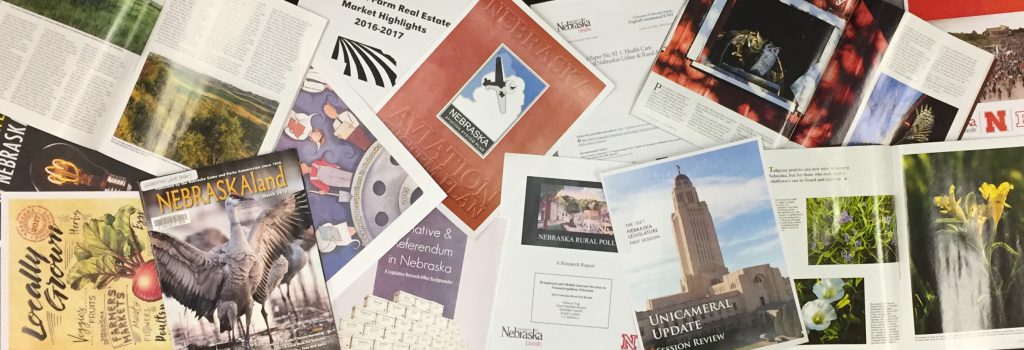
New state agency publications have been received at the Nebraska Library Commission for January and February, 2023. Included are reports from the Nebraska Department of Agriculture, the Nebraska Courts System, the Nebraska Game & Parks Commission, the Nebraska Department of Labor, and new books from the University of Nebraska Press, to name a few.
Most items, except the books from the University of Nebraska Press, are available for immediate viewing and printing by clicking on the highlighted link above, or directly in the .pdf below. You can read synopses of the books received from the University of Nebraska Press in the Book Briefs blogposts.
The Nebraska Legislature created the Nebraska Publications Clearinghouse in 1972 as a service of the Nebraska Library Commission. Its purpose is to collect, preserve, and provide access to all public information published by Nebraska state agencies. By law (State Statutes 51-411 to 51-413) all Nebraska state agencies are required to submit their published documents to the Clearinghouse. For more information, visit the Nebraska Publications Clearinghouse page, contact Mary Sauers, Government Information Services Librarian; or contact Bonnie Henzel, State Documents Staff Assistant.
Book Briefs: New University of Nebraska Press Books at the Nebraska Publications Clearinghouse
The Nebraska Publications Clearinghouse receives documents every month from all Nebraska state agencies, including the University of Nebraska Press (UNP). Each month we will be showcasing the UNP books that the Clearinghouse has received.
UNP books, as well as all Nebraska state documents, are available for checkout by libraries and librarians for their patrons.
Here are the UNP books the Clearinghouse received in January and February, 2023:
A Concise Dictionary of Nakoda (Assiniboine) by Vincent Collette; Series: Studies in the Native Languages of the Americas
A Concise Dictionary of Nakoda (Assiniboine) brings to life the hopes and dreams of Nakoda (Assiniboine) elders. The Nakoda language—also known as Assiniboine, an Ojibwe ethnonym meaning “Stone Enemy”—is an endangered Siouan language of the Mississippi Valley branch spoken in southern Saskatchewan and northern Montana. Nakoda belongs to the Dakotan dialectal continuum, which includes Dakota, Lakota, and Stoney.
The fieldwork for this project was done between 2018 and 2020 with Elder Wilma Kennedy, one of the last fluent speakers living in Carry The Kettle, Saskatchewan. The volume brings together many valuable stories and colorful expressions as well as archaic words that do not appear in any known sources of the language. Particular care was taken to obtain the derivatives of many verbal stems, along with sentences for many of the verbs, adverbs, and other function words.
More than a list of words, this volume contains definitions and standard spellings along with a wealth of grammatical information. The dictionary contains more than 6,000 Nakoda-to-English translations, more than 3,000 English-to-Nakoda translations, and more than 1,500 sentences that will be extremely helpful for those interested in mastering the different usages of words and the various sentence patterns of the language. This dictionary of Nakoda can be used by anyone interested in learning or would like to refresh their knowledge of the language.
A Maverick Boasian : The Life and Work of Alexander A Goldenweiser by Sergei Kan; Series: Critical Studies in the History of Anthropology
A Maverick Boasian explores the often contradictory life of Alexander Goldenweiser (1880–1940), a scholar considered by his contemporaries to be Franz Boas’s most brilliant and most favored student. The story of his life and scholarship is complex and exciting as well as frustrating. Although Goldenweiser came to the United States from Russia as a young man, he spent the next forty years thinking of himself as a European intellectual who never felt entirely at home. A talented ethnographer, he developed excellent rapport with his Native American consultants but cut short his fieldwork due to lack of funds. An individualist and an anarchist in politics, he deeply resented having to compromise any of his ideas and freedoms for the sake of professional success. A charming man, he risked his career and family life to satisfy immediate needs and wants.
A number of his books and papers on the relationship between anthropology and other social sciences helped foster an important interdisciplinary conversation that continued for decades after his death. For the first time, Sergei Kan brings together and examines all of Goldenweiser’s published scholarly works, archival records, personal correspondences, nonacademic publications, and living memories from several of Goldenweiser’s descendants.
Goldenweiser attracted attention for his unique progressive views on such issues as race, antisemitism, immigration, education, pacifism, gender, and individual rights. His was a major voice in a chorus of progressive Boasians who applied the insights of their discipline to a variety of questions on the American public’s mind. Many of the battles he fought are still with us today.
Aquaman and the War Against Oceans by Ryan Poll; Series: Encapsulations: Critical Comics Studies
The reimagining of Aquaman in The New 52 transformed the character from a joke to an important figure of ecological justice. In Aquaman and the War against Oceans, Ryan Poll argues that in this twenty-first-century iteration, Aquaman becomes an accessible figure for charting environmental violences endemic to global capitalism and for developing a progressive and popular ecological imagination.
Poll contends that The New 52 Aquaman should be read as an allegory that responds to the crises of the Anthropocene, in which the oceans have become sites of warfare and mass death. The Aquaman series, which works to bridge the terrestrial and watery worlds, can be understood as a form of comics activism by its visualizing and verbalizing how the oceans are beyond the projects of the “human” and “humanism” and, simultaneously, are all-too-human geographies that are inextricable from the violent structures of capitalism, white supremacy, and patriarchy. The New 52 Aquaman, Poll demonstrates, proves an important form of ocean literacy in particular and ecological literacy more generally.
Black Gun, Silver Star : the Life and Legend of Frontier Marshal Bass Reeves, New edition, by Art T. Burton
In The Story of Oklahoma, Deputy U.S. Marshal Bass Reeves appears as the “most feared U.S. marshal in the Indian country.” That Reeves was also an African American who had spent his early life enslaved in Arkansas and Texas made his accomplishments all the more remarkable. Black Gun, Silver Star sifts through fact and legend to discover the truth about one of the most outstanding peace officers in late nineteenth-century America—and perhaps the greatest lawman of the Wild West era.
Bucking the odds (“I’m sorry, we didn’t keep Black people’s history,” a clerk at one of Oklahoma’s local historical societies answered one query), Art T. Burton traces Reeves from his days of slavery to his Civil War soldiering to his career as a deputy U.S. marshal out of Fort Smith, Arkansas, when he worked under “Hanging Judge” Isaac C. Parker. Fluent in Creek and other regional Native languages, physically powerful, skilled with firearms, and a master of disguise, Reeves was exceptionally adept at apprehending fugitives and outlaws and his exploits were legendary in Oklahoma and Arkansas.
In this new edition Burton traces Reeves’s presence in the national media of his day as well as his growing modern presence in popular media such as television, movies, comics, and video games.
Breaking the Silence : Anthology of Liberian Poetry edited by Patricia Jabbeh Wesley; Series: African Poetry Book
Breaking the Silence is the first comprehensive collection of literature from Liberia since before the nation’s independence. Patricia Jabbeh Wesley has gathered work from the 1800s to the present, including poets and emerging young writers exploring contemporary literary traditions with African and African diaspora poetry that transcends borders. In this collection, Liberia’s founding settlers wrestle with their identity as African free slaves in the homeland from which their ancestors were captured, and writers of the early twentieth and twenty-first centuries find themselves navigating a landscape at odds with itself.
From poets of Liberia’s past to young writers of the present, the contributors to this volume celebrate the beauty of their nation while mourning the devastation of a long, bloody civil war.
Dog on Fire by Terese Svoboda; Series: Flyover Fiction
Out of a Shakespearean-wild Midwest dust storm, a man rises. “Just a glimpse of him,” says his sister; “every inch of him,” says his guilt-filled lover. “Close your eyes,” says his nephew. “What about it?” asks his father. The cupboard is filled with lime Jell-O, and there are aliens, deadly kissing, and a restless, alcoholic mother who carries a gun. “Every family is this normal,” insists the narrator. “Whoever noticed my brother, with a family as normal as this?” the beleaguered sister asks. Against the smoky prairie horizon and despite his seizures, a brother builds a life. Imbued with melancholy cheer, Dog on Fire unfolds around a family’s turmoil, past loves, and a mysterious death.
Hydronarratives : water, Environmental Justice, and a Just Transition by Matthew S. Henry
The story of water in the United States is one of ecosystemic disruption and social injustice. From the Standing Rock Indian Reservation and Flint, Michigan, to the Appalachian coal and gas fields and the Gulf Coast, low-income communities, Indigenous communities, and communities of color face the disproportionate effects of floods, droughts, sea level rise, and water contamination.
In Hydronarratives Matthew S. Henry examines cultural representations that imagine a just transition, a concept rooted in the U.S. labor and environmental justice movements to describe an alternative economic paradigm predicated on sustainability, economic and social equity, and climate resilience. Focused on regions of water insecurity, from central Arizona to central Appalachia, Henry explores how writers, artists, and activists have creatively responded to intensifying water crises in the United States and argues that narrative and storytelling are critical to environmental and social justice advocacy. By drawing on a wide and comprehensive range of narrative texts, historical documentation, policy papers, and literary and cultural scholarship, Henry presents a timely project that examines the social movement, just transition, and the logic of the Green New Deal, in addition to contemporary visions of environmental justice.
Mine Mine Mine by Uhuru Portia Phalafala; Series: African Poetry Book
Mine Mine Mine is a personal narration of Uhuru Portia Phalafala’s family’s experience of the migrant labor system brought on by the gold mining industry in Johannesburg, South Africa. Using geopoetics to map geopolitics, Phalafala follows the death of her grandfather during a historic juncture in 2018, when a silicosis class action lawsuit against the mining industry in South Africa was settled in favor of the miners.
Phalafala ties the catastrophic effects of gold mining on the miners and the environment in Johannesburg to the destruction of Black lives, the institution of the Black family, and Black sociality. Her epic poem addresses racial capitalism, bringing together histories of the transatlantic and trans-Indian slave trades, of plantation economies, and of mining and prison-industrial complexes. As inheritor of the migrant labor lineage, she uses her experience to explore how Black women carry intergenerational trauma of racial capitalism in their bodies and intersects the personal and national, continental and diasporic narration of this history within a critical race framework.
Segregation Made Them Neighbors : an Archaeology of Racialization in Boise, Idaho by William A. White III; Series: Historical Archaeology of the American West
Segregation Made Them Neighbors investigates the relationship between whiteness and nonwhiteness through the lenses of landscapes and material culture. William A. White III uses data collected from a public archaeology and digital humanities project conducted in the River Street neighborhood in Boise, Idaho, to investigate the mechanisms used to divide local populations into racial categories. The River Street Neighborhood was a multiracial, multiethnic enclave in Boise that was inhabited by African American, European American, and Basque residents. Building on theoretical concepts from whiteness studies and critical race theory, this volume also explores the ways Boise’s residents crafted segregated landscapes between the 1890s and 1960s to establish white and nonwhite geographies.
White describes how housing, urban infrastructure, ethnicity, race, and employment served to delineate the River Street neighborhood into a nonwhite space, an activity that resulted in larger repercussions for other Boiseans. Using material culture excavated from the neighborhood, White describes how residents used mass-produced products to assert their humanity and subvert racial memes.
By describing the effects of racial discrimination, real-estate redlining, and urban renewal on the preservation of historic properties in the River Street neighborhood, Segregation Made Them Neighbors illustrates the symbiotic mechanisms that also prevent equity and representation through historic preservation in other cities in the American West.
Speculative Wests : Popular Representations of a Region and Genre by Michael K. Johnson; Series: Postwestern Horizons
Looking across the cultural landscape of the twenty-first century, its literature, film, television, comic books, and other media, we can see multiple examples of what Shelley S. Rees calls a “changeling western,” what others have called “weird westerns,” and what Michael K. Johnson refers to as “speculative westerns”—that is, hybrid western forms created by merging the western with one or more speculative genres or subgenres, including science fiction, fantasy, horror, and alternate history.
Speculative Wests investigates both speculative westerns and other speculative texts that feature western settings. Just as “western” refers both to a genre and a region, Johnson’s narrative involves a study of both genre and place, a study of the “speculative Wests” that have begun to emerge in contemporary texts such as the zombie-threatened California of Justina Ireland’s Deathless Divide (2020), the reimagined future Navajo nation of Rebecca Roanhorse’s Sixth World series (2018–19), and the complex temporal and geographic borderlands of Alfredo Véa’s time travel novel The Mexican Flyboy (2016). Focusing on literature, film, and television from 2016 to 2020, Speculative Wests creates new visions of the American West.
Two Open Doors in a Field by Sophie Klahr; Series: The Backwaters Prize in Poetry Honorable Mention
The poems of Two Open Doors in a Field are constructed through deliberate limitations, restlessly exploring place, desire, and spirituality. A profusion of sonnets rises from a single circumstance: Sophie Klahr’s experience of driving thousands of miles alone while listening to the radio, where unexpected landscapes make listening to the unexpected more acute. Accompanied by the radio, Klahr’s experience of land is transformed by listening, and conversely, the body of the radio is sometimes lost to the body of the land. The love story at the core of this work, Klahr’s bond with Nebraska, becomes the engine of this travelogue. However far the poems range beyond Nebraska, they are tethered to an environment of work and creation, a place of dirt beneath the nails where one can see every star and feel, acutely, the complexity of connection.
Women, Empires, and Body Politics at the United Nations, 1946-1975 by Giusi Russo; Series: Expanding Frontiers: Interdisciplinary Approaches to Studies of Women, Gender, and Sexuality
Women, Empires, and Body Politics at the United Nations, 1946–1975 tells the story of how women’s bodies were at the center of the international politics of women’s rights in the postwar period. Giusi Russo focuses on the United Nation Commission on the Status of Women and its multiple interactions with the colonial and postcolonial worlds, showing how—depending on the setting and the inquiry—liberal, imperial, and transnational feminisms could coexist.
Russo suggests that in the early stages of identifying discriminating agents in women’s lives, UN commissioners overlooked the nation-state and went through a process of fighting discrimination without identifying the discriminator. However, it was the focus on empire that allowed for a clear identification of how gender constructs were instrumental to state politics and the exclusion of women. An emphasis on colonial practices also generated a focus on the body and radically shifted the commission’s politics from formal equality to a gender-based equilibrium of rights that emphasized practice rather than law. Through a multidisciplinary approach, Russo looks at the women living under colonial and postcolonial systems as the key actors in defining the politics of women’s rights at the UN.
**Pictures and Synopses courtesy of University of Nebraska Press.
Friday Reads: The Sentence, by Louise Erdrich
Sometimes, when authors narrate their own audiobooks, it turns out well. Even more rarely, it turns out amazingly well. I checked out The Sentence, the latest book from Louise Erdrich, from the audiobook shelf at the public library without looking at the narrator credit. I’m not sure what the hurry was—it came out in 2021 and I hadn’t read it yet. Once I was ready to listen, I saw that it was narrated by the author. This can be a real hit or miss situation, as any audiobook fan can tell you—narration is generally best left to professionals. I’m happy to share that Erdrich’s narration of her own book is fantastic, and brings new levels of appreciation for the text.
If you’re familiar with Erdrich’s work, you know that she understands her characters and their motivations deeply, and knows more about them than she puts on the page in black and white. Her narration of the dialogue in The Sentence illustrates this skill even further—each character speaks in their own distinctive way, with their own cadence and bluster or hesitation, with their own honesty and their own secrets.
The narration is so on point that I’m leading with that in this review, instead of where I would’ve expected to start: there is so much about books in this book. After a wild and tragic beginning in 2005, most of the story takes place in a bookstore starting in 2019, and that bookstore happens to be the bookstore Louise Erdrich owns in Minneapolis in real life. Erdrich herself is a character in the book—but she’s not one of the main characters. Her appearances in the bookstore, and the way patrons look for her there, are handled with comedic humility, and told through the eyes of our protagonist, Tookie, who works in the bookstore. (There’s also a ghost in the bookstore, but you should hear about that from Tookie.)
Tookie has a history, and a future, and a rich and nuanced love of books and authors and reading. Books have helped her through some hard times, and help her connect with other people, and find a way of living. (I ended up checking out the print book, also, so I could refer easily to all her book recommendations to bookstore customers.) The candid descriptions of customer interactions are refreshing, surprising—and validating. We are rooting for Tookie, and all her co-workers, especially since we know what’s ahead for the world and especially for Minneapolis.
Readers new to Erdrich may have heard that she handles heavy topics—she does! And no one handles the heaviest of topics in a more readable, listenable way. The Sentence deftly, compellingly, tackles every subject that one book-selling indigenous woman in Minneapolis might find in her life or her history—including her experiences in the summer of 2020.
Erdrich, Louise. The Sentence: A Novel. HarperCollins. 2021.
#BookFaceFriday – “Cotton Candy” by Ted Kooser
That one looks like a…#BookFaceFriday!
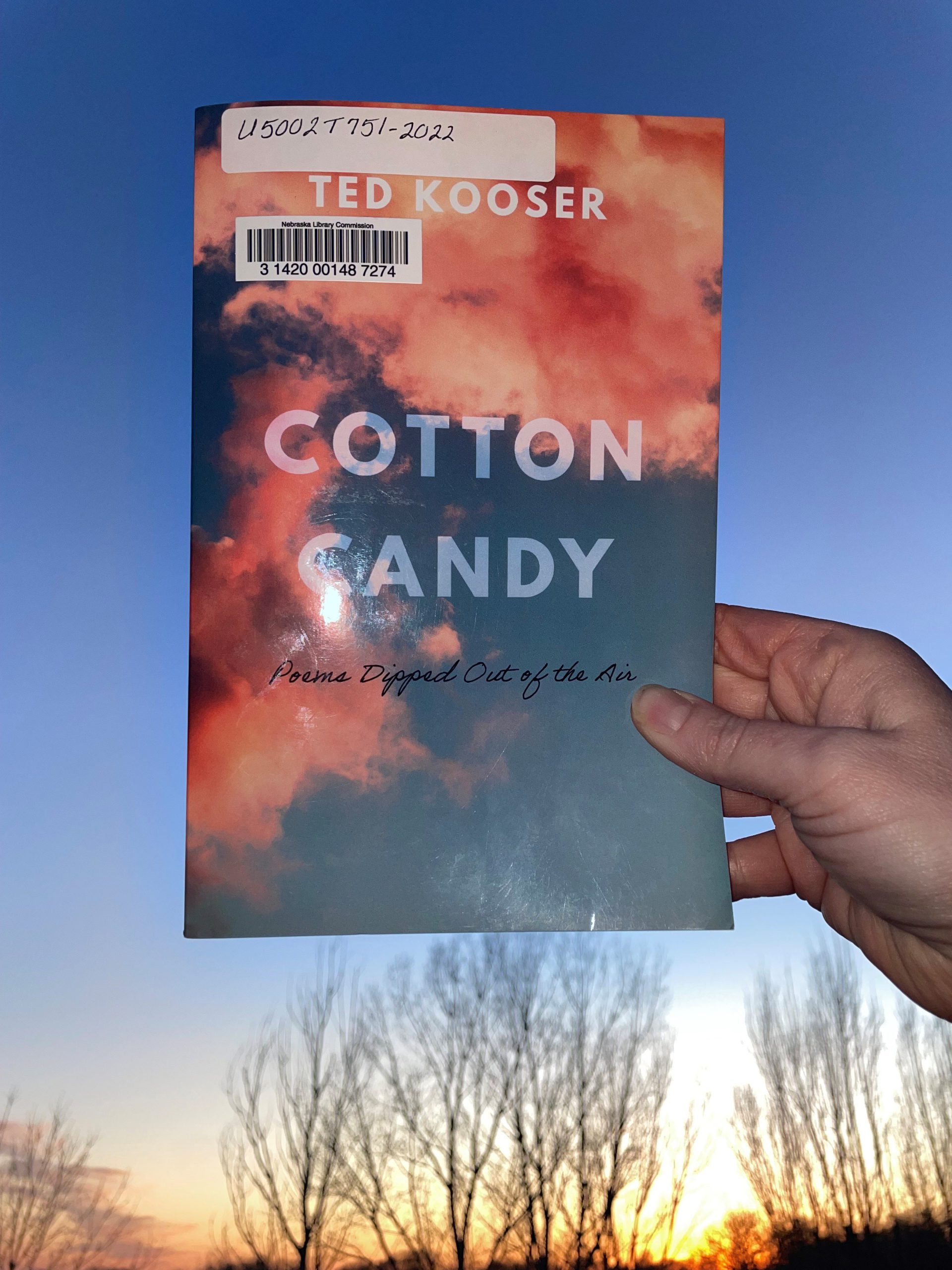
There is something so sweet about this week’s #BookFaceFriday, “Cotton Candy: Poems Dipped Out of the Air” by Ted Kooser (University of Nebraska Press; 2022.) Kooser was the U.S. poet laureate from 2004-2006, and won the Pulitzer Prize for Poetry in 2005. You can find this title and many more of his works in the Nebraska Library Commission’s permanent collection; the Nebraska Publications Clearinghouse receives documents every month from all Nebraska state agencies, including the University of Nebraska Press (UNP). UNP books, as well as all Nebraska state documents, are available for checkout by libraries and librarians for their patrons.
“That Kooser often sees things we do not would be delight enough, but more amazing is exactly what he sees. Nothing escapes him. Everything is illuminated. ―Library Journal
Love this #BookFace & reading? Check out our past #BookFaceFriday photos on the Nebraska Library Commission’s Facebook page!
Posted in Books & Reading, General
Tagged Book Covers, bookface, bookfacefriday, poems, poetry, Ted Kooser, University of Nebraska Press
Leave a comment
ALA Great Stories Club Grants for Teens
ALA is accepting applications for the Great Stories Club, is a thematic reading and discussion program that engages teens facing difficult challenges through literature-based library outreach programs. Applicants may choose to apply for one of the following themes: “Deeper Than Our Skins: The Present is a Conversation with the Past” and “Finding Your Voice.”
Application Deadline extended to March 29! Applications are due March 15, 2023.
Libraries will receive 11 paperback copies of up to four books on the reading list that explore questions of race, equity, identity and history to use in reading and discussion groups; a programming grant of up to $500; a virtual orientation training workshop for library project directors; and additional resources, training, and support from ALA’s Public Programs Office.
Applications will be accepted from all types of libraries (public, school, academic, special, etc.) in the United States and its territories that are located within an organization that reaches underserved, under-resourced, and/or at-risk teens (e.g., alternative high school, juvenile detention facility, tribal library) or working with a partner organization that reaches underserved, under-resourced, and/or at-risk teens.
Implementation is supported by a grant from the National Endowment for the Humanities. For more details and to apply, visit the website: https://www.ala.org/tools/programming/greatstories/apply
For more grants like this one, check out the NLC’s Grant Opportunities for Nebraska Libraries.
Posted in Books & Reading, Grants, Programming, Youth Services
Leave a comment
Book Club Spotlight – I Have Always Been Me

During Black History Month, we’re showcasing books by some incredible authors to celebrate Black voices in literature. And this week’s highlighted book, I Have Always Been Me by Precious Brady-Davis, is a bold coming-of-age and coming-of-self story set in a familiar locale. Born and raised in Omaha, Brady-Davis serves as the director of communications at the Sierra Club, a Diversity and Inclusion Consultant, and an LGBT+ and HIV activist. She was the first publicly out transgender woman on TLC’s Say Yes to the Dress and was featured on another TLC show, “My Pregnant Husband: documenting her and her husband’s journey to having a child together as a trans couple.
Precious was often the odd one out in her family and her Omaha community. Assigned as male at birth and growing up being perceived as one, she knew that her innate femininity was leading to bullying and unwanted attention. Being moved around between family members, foster care, and schools, it wasn’t until she started attending UNL that Precious began performing drag and was able to embrace the more authentic side of herself. During her education, Precious found her talent and love for diversity and inclusion advocacy through local programs and support from her peers and teachers. However, she had to reckon with her empathy and love for all people with what she was taught at home and in church. Precious recounts her intimate relationship with religion that shaped her youth and how it led to her continued ostracization by people she felt the closest to due to her gender nonconformity. And her reckoning between these two worlds that seemed so disparate is found to be fundamentally a part of her person. Moving to Chicago to finish school at Columbia College, Precious continued to find and foster her queer identity. Finally coming to herself as a trans woman and devoting her life to advocacy work, eventually falling in love and fully cementing her foundation for an incredible future ahead.
“For all of us who have been marginalized, who have been abandoned by those who are meant to love us, who have been damned by those who are meant to bless us, who have been looked at with disgust and told that we are wrong, that we are sinful, that we are abominations, now is the time to go forth and be fierce with clear intent while standing tall, showing that marginalized folks aren’t going anywhere as we activate our power.”
Precious Brady-Davis
I Have Always Been Me is a well-known tale of how a person can desperately search for a community as a child but be turned away at every corner. And it isn’t until they are introduced to the world of unconditional acceptance that they finally have the tools to escape survival mode to grow and flourish. While the subject may be new, the story will feel familiar to members of an adult or mature young-adult book group and can open the floor to discussion on the different ways people can be made to feel like outsiders and how vital community support is for disenfranchised young people. Stories like Brady-Davis’s are pivotal in normalizing and loving trans people, especially Black Trans women in Nebraska. Reading the interpersonal stories of affected people, like with any other minority group, lends a bigger picture to the conversation in ways only literature can and showcases the incredible resilience needed to simply be yourself.
If you’re interested in requesting I Have Always Been Me for your book club, you can find the Book Club Kit Request Form here. There are 10 copies available (A librarian must request items)
To see more of our Black Voices book club titles, visit here
Brady-Davis, Precious. I Have Always Been Me. TOPPLE Books. 2021.
Posted in Books & Reading
Tagged Black Voices, book club spotlight, books, Nebraska Author, Reading
Leave a comment
NCompass Live: 2023 One Book One Nebraska: The Mystery of Hunting’s End
Celebrate the 2023 One Book One Nebraska selection, The Mystery of Hunting’s End, with us on next week’s NCompass Live webinar, on Wednesday, March 1 at 10am CT.
In this nineteenth year of One Book One Nebraska, Nebraska libraries and other literary and cultural organizations continue to plan activities and events to encourage all Nebraskans to read and discuss the same book. Join us to hear more about this state reading promotion activity, sponsored by the Nebraska Center for the Book, Humanities Nebraska, and the Nebraska Library Commission.
We are excited to talk about the 2023 selection The Mystery of Hunting’s End by Mignon Eberhart (University of Nebraska Press, 1998).
Join Nebraska Library Commission Communication Coordinator Tessa Terry, Nebraska Center for the Book President Christine Walsh, and Nebraska Center for the Book Board Member Becky Faber to:
- Learn about how to create a successful local reading promotion using Nebraska’s year-long, statewide celebration featuring The Mystery of Hunting’s End, by Mignon Eberhart.
- Brainstorm strategies to read and discuss The Mystery of Hunting’s End.
- Find tools to help engage your community in local activities to encourage them to come together through literature to explore this work in community-wide reading programs.
- Learn about the 2023 Celebration of Nebraska Books, which will celebrate this book, along with the winners of the 2023 Nebraska Book Awards.
Upcoming NCompass Live shows:
- March 8 – Read the Rainbow: Serving the LGBTQ+ Community in Your Library
- March 29 – Pretty Sweet Tech
- April 19 – Creative Aging Arts Program for Nebraska Libraries

For more information, to register for NCompass Live, or to listen to recordings of past events, go to the NCompass Live webpage.
NCompass Live is broadcast live every Wednesday from 10am – 11am Central Time. Convert to your time zone on the Official U.S. Time website. The show is presented online using the GoToWebinar online meeting service. Before you attend a session, please see the NLC Online Sessions webpage for detailed information about GoToWebinar, including system requirements, firewall permissions, and equipment requirements for computer speakers and microphones.
Posted in Books & Reading, Education & Training, Nebraska Center for the Book, Programming
Tagged NCompLive
Leave a comment
#BookFaceFriday “What’s the Matter with Mary Jane?” by Candas Jane Dorsey
Take a walk with this #BookFaceFriday!
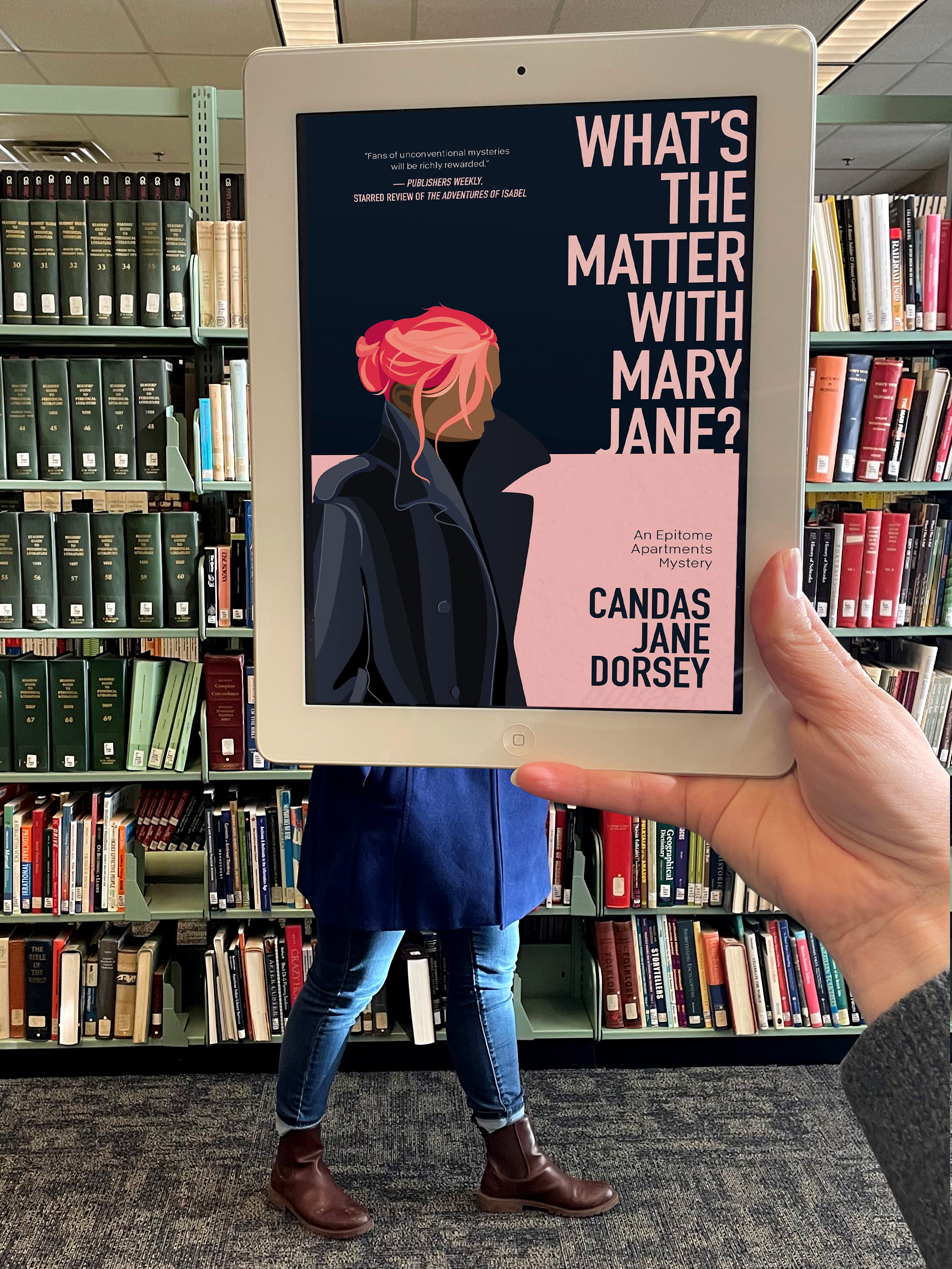
Pop that collar and take a stroll with this week’s #BookFaceFriday. If these blustery Midwest days are too much for your daily walk, why not just sit down with a good book, like “What’s the Matter with Mary Jane?: An Epitome Apartments Mystery” by Candas Jane Dorsey (ECW Press, 2021)? This title is available as both an eBook and an Audiobook in Nebraska OverDrive Libraries. We also have the first book in Dorsey’s Epitome Apartments series “The Adventures of Isabel” available as well.
“A wise-cracking, grammar-obsessed, pansexual amateur sleuth is thrust into the world of the uber-rich when her enigmatic, now-famous childhood friend breezes back into her life begging for help with a dangerous stalker.”
– book jacket
Find this title and many more through Nebraska OverDrive! Libraries participating in the Nebraska OverDrive Libraries Group currently have access to a shared and growing collection of digital downloadable audiobooks and eBooks. 189 libraries across the state share the Nebraska OverDrive collection of 21,696 audiobooks, 35,200 eBooks, and 3,964 magazines. As an added bonus it includes 130 podcasts that are always available with simultaneous use (SU), as well as SU ebooks and audiobook titles that publishers have made available for a limited time. If you’re a part of it, let your users know about this great title, and if you’re not a member yet, find more information about participating in Nebraska Overdrive Libraries!
Love this #BookFace & reading? Check out our past #BookFaceFriday photos on the Nebraska Library Commission’s Facebook page!
Posted in Books & Reading, General
Tagged Audiobook, bookfacefriday, Ebook, libraries, Nebraska OverDrive Libraries, Reading
Leave a comment
Friday Reads: The Cutting Room and The Second Cut by Louise Welsh
Looking for Scottish authors in preparation for an upcoming trip, Megan at Francie and Finch pointed me to Louise Welsh, a writer and Professor of Creative Writing at the University of Glasgow. Both titles are 1 and 2 in a series that feature a promiscuous, gay auctioneer named Rilke, who works for a struggling auction house in Glasgow. For those who like to listen, Scottish actor Alan Cumming narrates this series to perfection. In both books, Rilke’s company is hired to expedite the sale of a considerable estate with complete discretion.
In The Cutting Room, Bowery Auctions liquidates the home of the wealthy and recently deceased Roddy McKindless. Rilke discovers a collection of snuff photographs hidden in an extensive pornography library. The woman featured in the photos is stuck in his memory. Is she alive or dead and how can he put his mind at ease? In The Second Cut, Rilke follows a tip for a questionable estate sale from his friend JoJo, who turns up dead a few days later. There are additional circumstances that create doubt about the legitimacy of the sale, including the missing matriarch, the intended beneficiary of the auction proceeds. Where do you begin to investigate snuff photography and even though JoJo was known to the police for various recreational activities, why is his death not being investigated as a murder? Rilke’s moral compass compels him to find answers.
Unlike busybody sleuths in cozy mysteries, Rilke moves through the seedy underbelly of Glasgow to investigate with more incentive than sheer nosiness. His professional reputation and livelihood are at stake. The deals he makes to barter information with various characters/criminals often put his life in danger. The cast created by Welsh is colorful, gritty, and uniquely likeable. Given the amount of time between the two books, I am hopeful Louise continues writing Rilke stories and that Alan continues narrating them.
Welsh, Louise, The Cutting Room. Canongate Books Ltd. 2003.
Welsh, Louise, The Second Cut. Canongate Books Ltd. 2022.
Big Talk From Small Libraries 2023 is tomorrow!
Small libraries! Awesome ideas! FREE!
Join us tomorrow for the 2023 Big Talk From Small Libraries online conference. Registration is still open, so head over to the Registration page and sign up!
We have a full agenda for the day, with speakers from academic and public libraries presenting on a wide variety of topics: Zombie Prom, staff evaluations, adapting big outreach for small libraries, book challenges in small libraries, library playgrounds, programming for adults with disabilities, and much more.
This event is a great opportunity to learn about the innovative things your colleagues are doing in their small libraries.
And, Nebraska library staff and board members can earn 1 hour of CE Credit for each hour of the conference you attend! A special Big Talk From Small Libraries CE Report form has been made available for you to submit your C.E. credits.
So, come join us for a day of big ideas from small libraries!
Friday Reads: “The Diving Bell and the Butterfly: A Memoir of Life in Death” by Jean-Dominique Bauby
For me, the hallmark of all my favorite books is that I enjoy reading them over and over again. Maybe years apart or for some I revisit them every year, but I always come back. If I like a book enough that I want to re-read it, I know it’s a classic for me. This is one of those books. Written entirely by a man bed-bound and paralyzed, Jean-Dominique Bauby, suffered a massive stroke and was left in what doctors thought was a completely vegetative state. In truth, his mind was intact but he could no longer communicate with the rest of his body, what is now known as locked-in syndrome. Yet through blinking and eye-movement alone, he wrote what is one of the most beautiful books I have ever read. It is both his memoir and treaties on life and death and how he copes with the hand he’s been dealt. Translated from Bauby’s original french by Jeremy Leggatt, this short (only 131 pages) but poignant book will make every reader look at the world differently.
Bauby, Jean-Dominique. The Diving Bell and the Butterfly: A Memoir of Life in Death. Vintage. 1998.
Posted in Books & Reading, General
Tagged Book Review, Friday Reads, Kassandra Montag, mystery, Reading, series, Those Who Return
Leave a comment
#BookFaceFriday – “Black Print with a White Carnation” by Amy Helene Forss
#BookFaceFriday celebrates Black History Month!
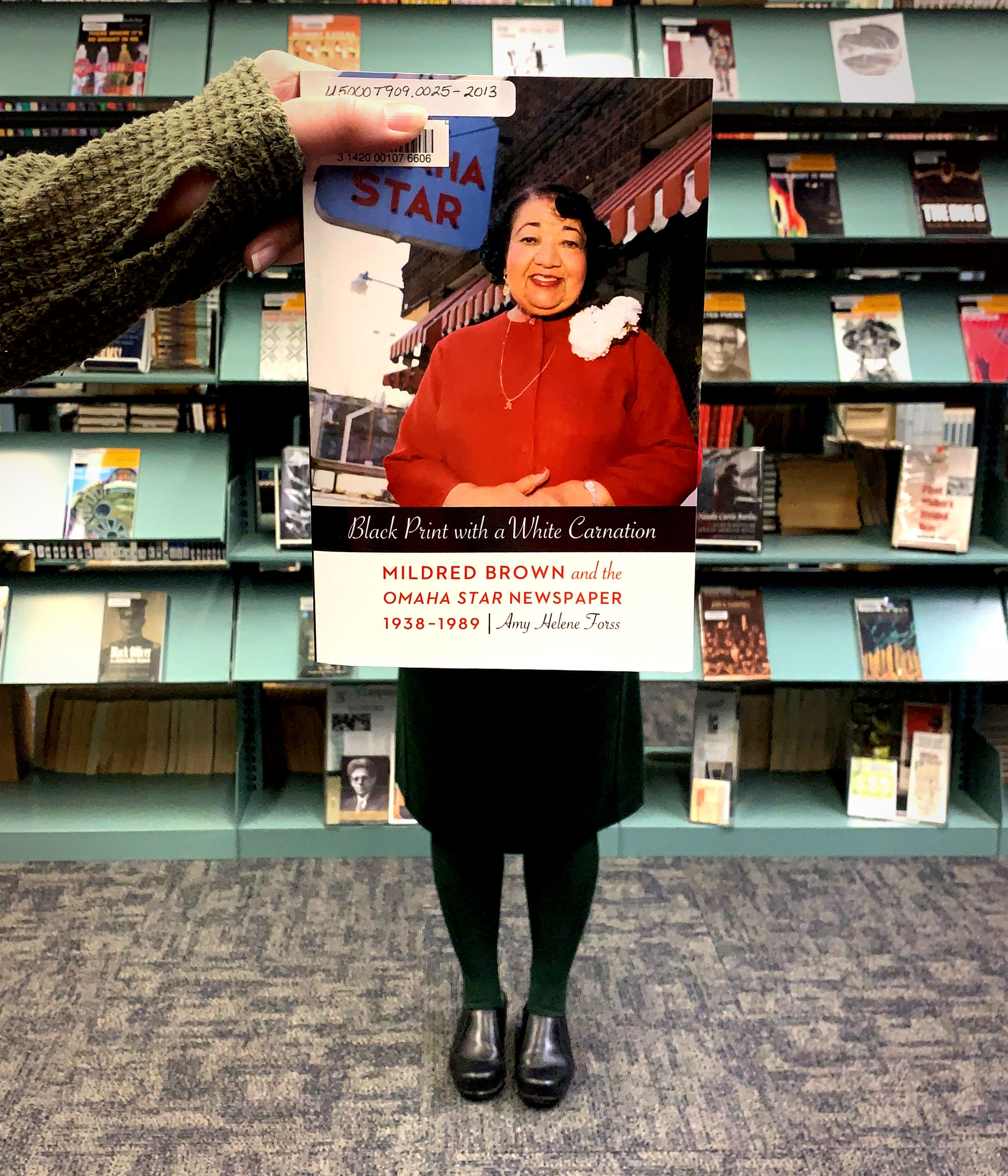
Extra, extra, read all about it with this week’s #BookFaceFriday, “Black Print with a White Carnation: Mildred Brown and the Omaha Star Newspaper, 1938-1989” by Amy Helene Forss (University of Nebraska Press; Illustrated edition, 2014.) You can find this title in the Nebraska Library Commission’s permanent collection; the Nebraska Publications Clearinghouse receives documents every month from all Nebraska state agencies, including the University of Nebraska Press (UNP). UNP books, as well as all Nebraska state documents, are available for checkout by libraries and librarians for their patrons. Find great reads to celebrate Black History Month in all of NLC’s collections, including Book Club Kits, and Nebraska OverDrive Libraries.
“In addition to its well-researched look at Brown’s career, the book provides an informative description of the history of black-owned newspapers in North America, going back to the founding in 1853 of the Provincial Freeman, an antislavery newspaper in Canada.” ―Omaha World-Herald
Love this #BookFace & reading? Check out our past #BookFaceFriday photos on the Nebraska Library Commission’s Facebook page!
Book Club Spotlight – Long Way Down

It’s our first Book Club Spotlight of Black History Month, which means this month, we’re showcasing books by incredible authors to celebrate Black Voices in literature. Today’s author, Jason Reynolds, is the recipient of awards such as the NAACP Image Award and multiple Coretta Scott King honors and was the 2020-2022 National Ambassador for Young People’s Literature. Reynolds encourages us not to see the genre of YA as limiting, enjoying the freedom of emotion young people carry to tell good stories. Today’s spotlight, recipient of the Printz and Newbery Honors, Long Way Down, is written in free verse, through snippets of dreams and recollections, as a young boy is visited by the ghosts of his past.
After witnessing his brother’s murder, Will knows what he has to do. Follow The Rules.
1) Don’t Cry 2) Don’t Snitch 3) Get Revenge.
He doesn’t know who created The Rules and when, but he does know that it’s his duty to follow them. Because he knows, or at least he thinks he knows, who killed Shawn. Will finds his brother’s hidden gun, gets on the 8th-floor elevator and presses L. As Will goes further down the elevator, he is visited by those who are gone because of the same Rules he is now going to follow, and he is given a chance to either continue the cycle or break it apart.
“MY MOTHER USED TO SAY
Jason Reynolds
I know you’re young,
gotta get it out
but just remember, when
you’re walking in the nighttime,
make sure the nighttime
ain’t walking into you.”
For ages 12 and above, Long Way Down skillfully employs free verse to weave together an unforgettable story about the cycle of violence, especially in how it affects urban and Black communities. Reynolds prefers not to shy away from realism and challenging topics in his novels because the kids reading them have experienced or will experience the same situations in real life. Reynolds, himself, almost fell victim to the cycle when he was younger, and he uses his real-life experiences and emotions to cut to the core of why violence like this continues to happen. Much like Will’s elevator ride that only takes sixty seconds, but lasts a whole novel, reading Long Way Down, can be taken at whatever pace is comfortable to the reader’s skill level. And as violence in schools continues to be a constant fear, there will be plenty for young reading groups to discuss as the floors tick by.
If you’re interested in requesting Long Way Down for your book club, you can find the Book Club Kit Request Form here. There are 10 copies available (Items must be requested by a librarian)
To read more by Jason Reynolds, check out his Track Series, or, The Boy in the Black Suit (One Book For Nebraska Teens 2019).
Reynolds, Jason. Long Way Down. Atheneum. 2017.
Posted in Books & Reading
Tagged Black History Month, Black Voices, book club spotlight, books, Reading
Leave a comment
Books Save Lives Grant for School Libraries
We Need Diverse Books (WNDB) is accepting applications for its Books Save Lives Grants, providing up to $10,000 in diverse titles to school libraries.
WNDB will prioritize grants for schools located in areas most impacted by book bans and censorship. The grant money must be used toward purchasing diverse books and the books must remain on the shelves for a minimum of four years.
Applications are due by February 28, 2023.
Applicants must nominate a school library within the United States to receive a Books Save Lives Grant and applications may be completed anonymously.
Winning school libraries will be able to select diverse titles from book lists provided by WNDB, which have been vetted by the WNDB team that’s comprised of award-winning authors, teachers, and librarians. Each winning school may also submit a list of up to 30 diverse titles that they’d like to receive with their grant money, pending review. Books are shipped directly to the school.
For more information and to apply, visit the website at https://diversebooks.org/programs/books-save-lives-grant
For more grants like this one, check out the NLC’s Grant Opportunities for Nebraska Libraries.
Posted in Books & Reading, Grants, Youth Services
Leave a comment

